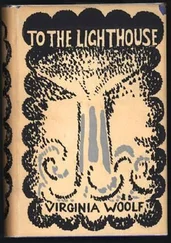“One doesn’t necessarily trample upon people’s bodies because one runs an office,” Mary remarked.
“No. Perhaps not,” Katharine replied. The conversation lapsed, and Mary saw Katharine looking out into the room rather moodily with closed lips, the desire to talk about herself or to initiate a friendship having, apparently, left her. Mary was struck by her capacity for being thus easily silent, and occupied with her own thoughts. It was a habit that spoke of loneliness and a mind thinking for itself. When Katharine remained silent Mary was slightly embarrassed.
“Yes, they’re very like sheep,” she repeated, foolishly.
“And yet they are very clever—at least,” Katharine added, “I suppose they have all read Webster.”
“Surely you don’t think that a proof of cleverness? I’ve read Webster, I’ve read Ben Jonson, but I don’t think myself clever—not exactly, at least.”
“I think you must be very clever,” Katharine observed.
“Why? Because I run an office?”
“I wasn’t thinking of that. I was thinking how you live alone in this room, and have parties.”
Mary reflected for a second.
“It means, chiefly, a power of being disagreeable to one’s own family, I think. I have that, perhaps. I didn’t want to live at home, and I told my father. He didn’t like it…. But then I have a sister, and you haven’t, have you?”
“No, I haven’t any sisters.”
“You are writing a life of your grandfather?” Mary pursued.
Katharine seemed instantly to be confronted by some familiar thought from which she wished to escape. She replied, “Yes, I am helping my mother,” in such a way that Mary felt herself baffled, and put back again into the position in which she had been at the beginning of their talk. It seemed to her that Katharine possessed a curious power of drawing near and receding, which sent alternate emotions through her far more quickly than was usual, and kept her in a condition of curious alertness. Desiring to classify her, Mary bethought her of the convenient term “egoist.”
“She’s an egoist,” she said to herself, and stored that word up to give to Ralph one day when, as it would certainly fall out, they were discussing Miss Hilbery.
“Heavens, what a mess there’ll be to-morrow morning!” Katharine exclaimed. “I hope you don’t sleep in this room, Miss Datchet?”
Mary laughed.
“What are you laughing at?” Katharine demanded.
“I won’t tell you.”
“Let me guess. You were laughing because you thought I’d changed the conversation?”
“No.”
“Because you think—” She paused.
“If you want to know, I was laughing at the way you said Miss Datchet.”
“Mary, then. Mary, Mary, Mary.”
So saying, Katharine drew back the curtain in order, perhaps, to conceal the momentary flush of pleasure which is caused by coming perceptibly nearer to another person.
“Mary Datchet,” said Mary. “It’s not such an imposing name as Katharine Hilbery, I’m afraid.”
They both looked out of the window, first up at the hard silver moon, stationary among a hurry of little grey-blue clouds, and then down upon the roofs of London, with all their upright chimneys, and then below them at the empty moonlit pavement of the street, upon which the joint of each paving-stone was clearly marked out. Mary then saw Katharine raise her eyes again to the moon, with a contemplative look in them, as though she were setting that moon against the moon of other nights, held in memory. Some one in the room behind them made a joke about star-gazing, which destroyed their pleasure in it, and they looked back into the room again.
Ralph had been watching for this moment, and he instantly produced his sentence.
“I wonder, Miss Hilbery, whether you remembered to get that picture glazed?” His voice showed that the question was one that had been prepared.
“Oh, you idiot!” Mary exclaimed, very nearly aloud, with a sense that Ralph had said something very stupid. So, after three lessons in Latin grammar, one might correct a fellow student, whose knowledge did not embrace the ablative of “mensa.”
“Picture—what picture?” Katharine asked. “Oh, at home, you mean—that Sunday afternoon. Was it the day Mr. Fortescue came? Yes, I think I remembered it.”
The three of them stood for a moment awkwardly silent, and then Mary left them in order to see that the great pitcher of coffee was properly handled, for beneath all her education she preserved the anxieties of one who owns china.
Ralph could think of nothing further to say; but could one have stripped off his mask of flesh, one would have seen that his will-power was rigidly set upon a single object—that Miss Hilbery should obey him. He wished her to stay there until, by some measures not yet apparent to him, he had conquered her interest. These states of mind transmit themselves very often without the use of language, and it was evident to Katharine that this young man had fixed his mind upon her. She instantly recalled her first impressions of him, and saw herself again proffering family relics. She reverted to the state of mind in which he had left her that Sunday afternoon. She supposed that he judged her very severely. She argued naturally that, if this were the case, the burden of the conversation should rest with him. But she submitted so far as to stand perfectly still, her eyes upon the opposite wall, and her lips very nearly closed, though the desire to laugh stirred them slightly.
“You know the names of the stars, I suppose?” Denham remarked, and from the tone of his voice one might have thought that he grudged Katharine the knowledge he attributed to her.
She kept her voice steady with some difficulty.
“I know how to find the Pole star if I’m lost.”
“I don’t suppose that often happens to you.”
“No. Nothing interesting ever happens to me,” she said.
“I think you make a system of saying disagreeable things, Miss Hilbery,” he broke out, again going further than he meant to. “I suppose it’s one of the characteristics of your class. They never talk seriously to their inferiors.”
Whether it was that they were meeting on neutral ground to-night, or whether the carelessness of an old grey coat that Denham wore gave an ease to his bearing that he lacked in conventional dress, Katharine certainly felt no impulse to consider him outside the particular set in which she lived.
“In what sense are you my inferior?” she asked, looking at him gravely, as though honestly searching for his meaning. The look gave him great pleasure. For the first time he felt himself on perfectly equal terms with a woman whom he wished to think well of him, although he could not have explained why her opinion of him mattered one way or another. Perhaps, after all, he only wanted to have something of her to take home to think about. But he was not destined to profit by his advantage.
“I don’t think I understand what you mean,” Katharine repeated, and then she was obliged to stop and answer some one who wished to know whether she would buy a ticket for an opera from them, at a reduction. Indeed, the temper of the meeting was now unfavorable to separate conversation; it had become rather debauched and hilarious, and people who scarcely knew each other were making use of Christian names with apparent cordiality, and had reached that kind of gay tolerance and general friendliness which human beings in England only attain after sitting together for three hours or so, and the first cold blast in the air of the street freezes them into isolation once more. Cloaks were being flung round the shoulders, hats swiftly pinned to the head; and Denham had the mortification of seeing Katharine helped to prepare herself by the ridiculous Rodney. It was not the convention of the meeting to say good-bye, or necessarily even to nod to the person with whom one was talking; but, nevertheless, Denham was disappointed by the completeness with which Katharine parted from him, without any attempt to finish her sentence. She left with Rodney.
Читать дальше












